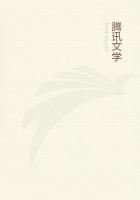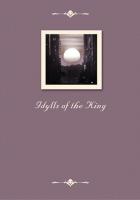But, from an early age, he had been remarked as a thoughtful man. His companions named him "_Al Amin_, The Faithful." A man of truth and fidelity; true in what he did, in what he spake and thought. They noted that _he_ always meant something. A man rather taciturn in speech; silent when there was nothing to be said; but pertinent, wise, sincere, when he did speak; always throwing light on the matter. This is the only sort of speech _worth_ speaking! Through life we find him to have been regarded as an altogether solid, brotherly, genuine man. A serious, sincere character;yet amiable, cordial, companionable, jocose even;--a good laugh in him withal: there are men whose laugh is as untrue as anything about them; who cannot laugh. One hears of Mahomet's beauty: his fine sagacious honest face, brown florid complexion, beaming black eyes;--I somehow like too that vein on the brow, which swelled up black when he was in anger: like the "_horseshoe_ vein" in Scott's _Redgauntlet_. It was a kind of feature in the Hashem family, this black swelling vein in the brow; Mahomet had it prominent, as would appear. A spontaneous, passionate, yet just, true-meaning man! Full of wild faculty, fire and light; of wild worth, all uncultured; working out his life-task in the depths of the Desert there.
How he was placed with Kadijah, a rich Widow, as her Steward, and travelled in her business, again to the Fairs of Syria; how he managed all, as one can well understand, with fidelity, adroitness; how her gratitude, her regard for him grew: the story of their marriage is altogether a graceful intelligible one, as told us by the Arab authors. He was twenty-five; she forty, though still beautiful. He seems to have lived in a most affectionate, peaceable, wholesome way with this wedded benefactress;loving her truly, and her alone. It goes greatly against the impostor theory, the fact that he lived in this entirely unexceptionable, entirely quiet and commonplace way, till the heat of his years was done. He was forty before he talked of any mission from Heaven. All his irregularities, real and supposed, date from after his fiftieth year, when the good Kadijah died. All his "ambition," seemingly, had been, hitherto, to live an honest life; his "fame," the mere good opinion of neighbors that knew him, had been sufficient hitherto. Not till he was already getting old, the prurient heat of his life all burnt out, and _peace_ growing to be the chief thing this world could give him, did he start on the "career of ambition;" and, belying all his past character and existence, set up as a wretched empty charlatan to acquire what he could now no longer enjoy! For my share, I have no faith whatever in that.
Ah no: this deep-hearted Son of the Wilderness, with his beaming black eyes and open social deep soul, had other thoughts in him than ambition. Asilent great soul; he was one of those who cannot _but_ be in earnest; whom Nature herself has appointed to be sincere. While others walk in formulas and hearsays, contented enough to dwell there, this man could not screen himself in formulas; he was alone with his own soul and the reality of things. The great Mystery of Existence, as I said, glared in upon him, with its terrors, with its splendors; no hearsays could hide that unspeakable fact, "Here am I!" Such _sincerity_, as we named it, has in very truth something of divine. The word of such a man is a Voice direct from Nature's own Heart. Men do and must listen to that as to nothing else;--all else is wind in comparison. From of old, a thousand thoughts, in his pilgrimings and wanderings, had been in this man: What am I? What _is_ this unfathomable Thing I live in, which men name Universe? What is Life; what is Death? What am I to believe? What am I to do? The grim rocks of Mount Hara, of Mount Sinai, the stern sandy solitudes answered not. The great Heaven rolling silent overhead, with its blue-glancing stars, answered not. There was no answer. The man's own soul, and what of God's inspiration dwelt there, had to answer!
It is the thing which all men have to ask themselves; which we too have to ask, and answer. This wild man felt it to be of _infinite_ moment; all other things of no moment whatever in comparison. The jargon of argumentative Greek Sects, vague traditions of Jews, the stupid routine of Arab Idolatry: there was no answer in these. A Hero, as I repeat, has this first distinction, which indeed we may call first and last, the Alpha and Omega of his whole Heroism, That he looks through the shows of things into _things_. Use and wont, respectable hearsay, respectable formula:
all these are good, or are not good. There is something behind and beyond all these, which all these must correspond with, be the image of, or they are--_Idolatries_; "bits of black wood pretending to be God;" to the earnest soul a mockery and abomination. Idolatries never so gilded, waited on by heads of the Koreish, will do nothing for this man. Though all men walk by them, what good is it? The great Reality stands glaring there upon _him_. He there has to answer it, or perish miserably. Now, even now, or else through all Eternity never! Answer it; _thou_ must find an answer.--Ambition? What could all Arabia do for this man; with the crown of Greek Heraclius, of Persian Chosroes, and all crowns in the Earth;--what could they all do for him? It was not of the Earth he wanted to hear tell;it was of the Heaven above and of the Hell beneath. All crowns and sovereignties whatsoever, where would _they_ in a few brief years be? To be Sheik of Mecca or Arabia, and have a bit of gilt wood put into your hand,--will that be one's salvation? I decidedly think, not. We will leave it altogether, this impostor hypothesis, as not credible; not very tolerable even, worthy chiefly of dismissal by us.

